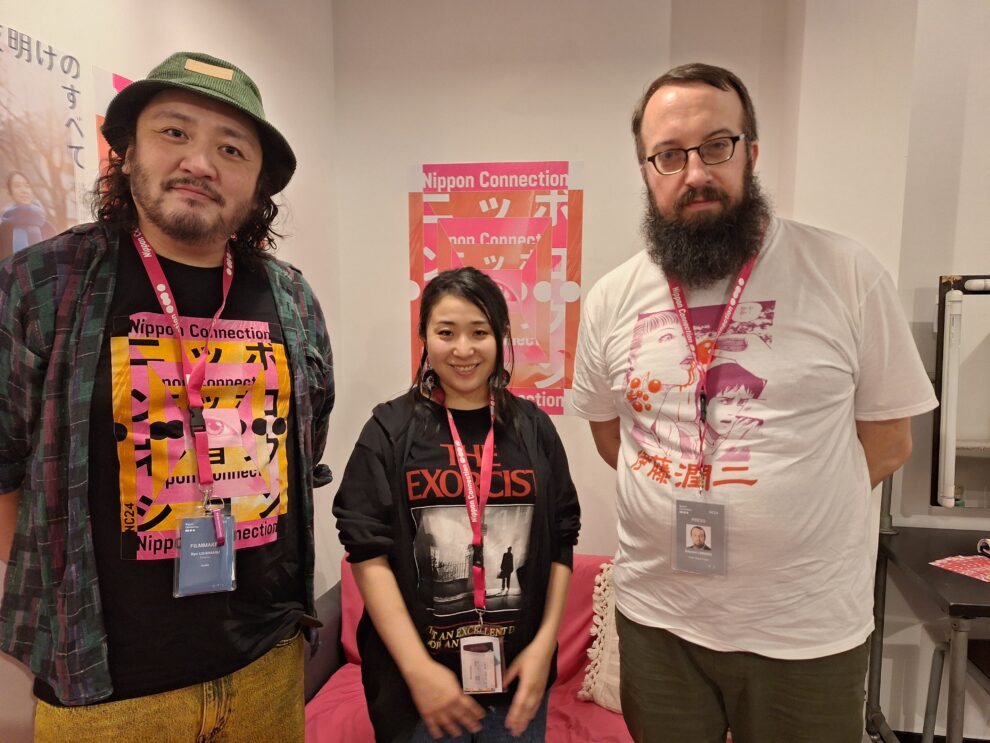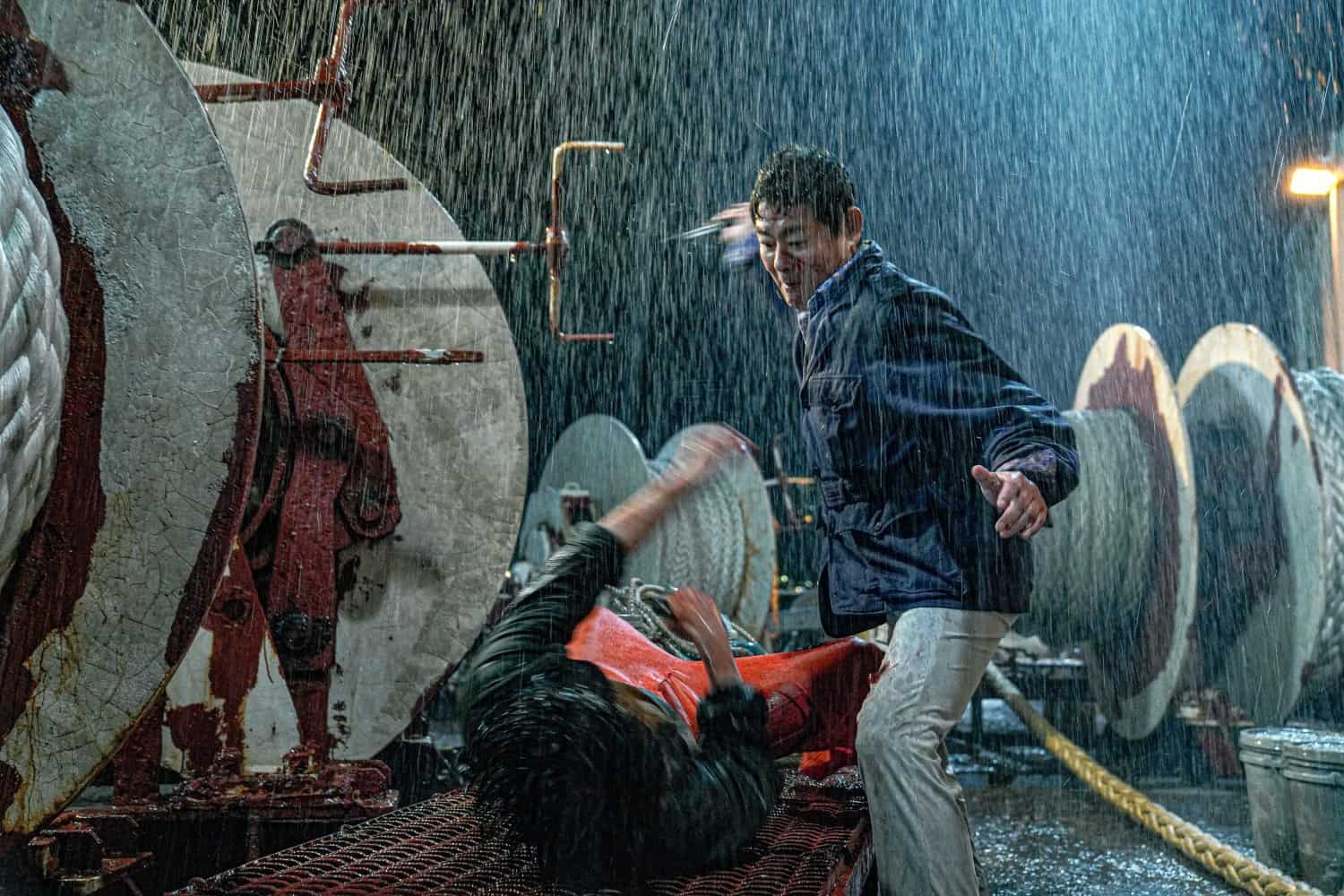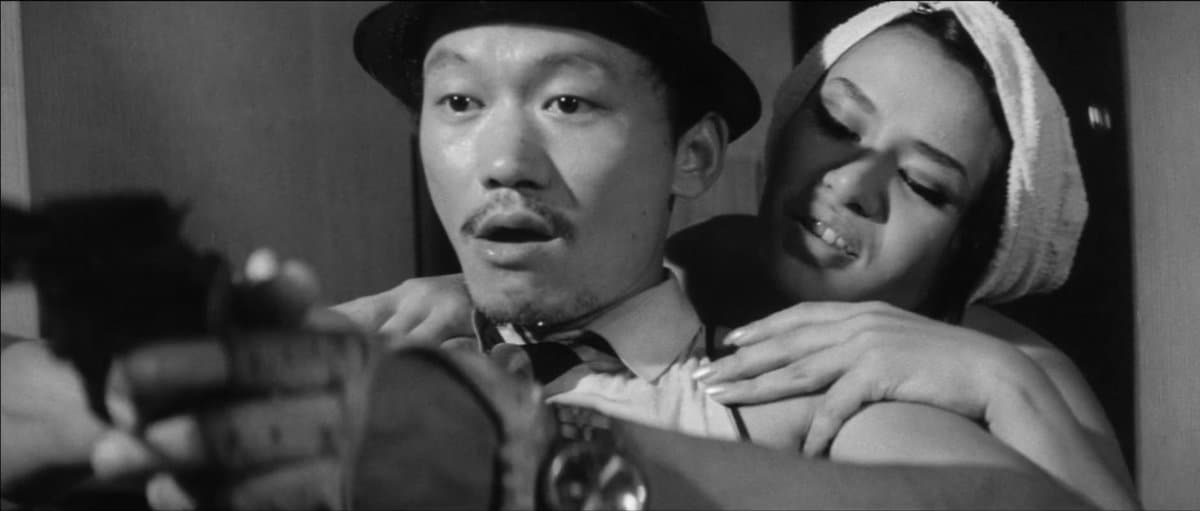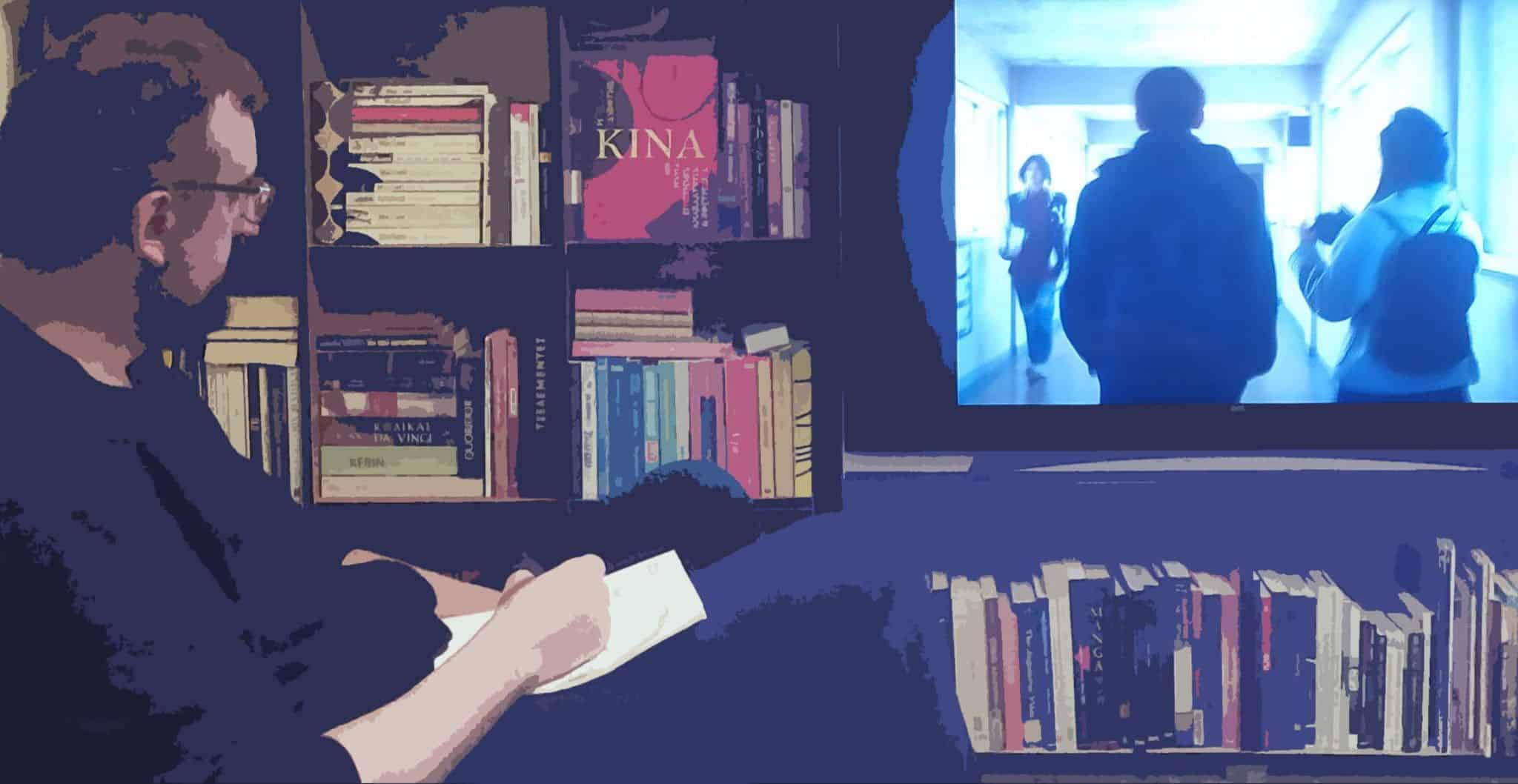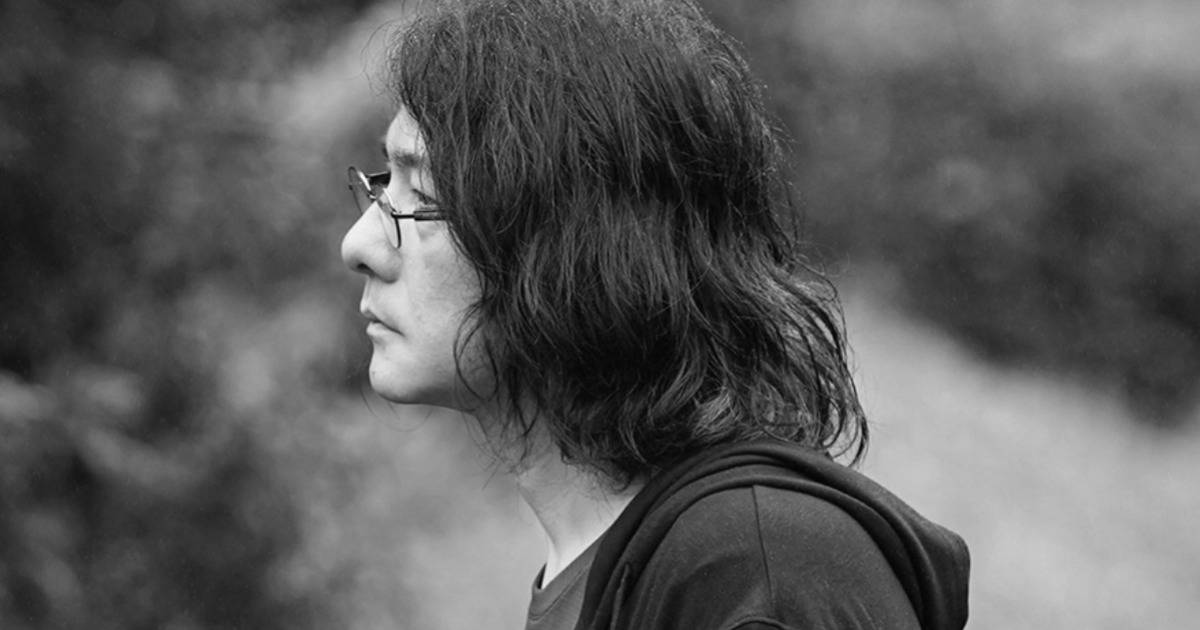Director Ryo Ushimaru started his career in front of the camera, working as a model and an actor in productions such as Masashi Yamamoto's “The Voice of Water” or Eiji Uchida's “Lowlife Love” until he finally ventured into directing in 2017 with his first short feature “Smile”. “Qualia”, which had its international premiere at Nippon Connection 2024, is his first feature film. Maya Kudamatsu is and actress and also Ryo Ushimaru's wife and the two of them own a bar named Bar DUDE in Shinjuku, Tokyo. In “Qualia” she plays the role of Satomi Tanaka, the older sister of the main character Yuko.
On the occasion of “Qualia” being screened at Nippon Connection we talk about the shooting, “Qualia” as a satire and working with chicken.

What was it like working with that many chickens in “Qualia”?
Ryo Ushimaru: To begin with, it was very difficult to find a poultry farm which allowed filming to take place there. Ever since I had COVID I cannot smell that well, so working there was fine for me, but my wife and the other members of the cast had a different experience. (laughs)
Maya Kudamatsu: And I was lucky enough to not have any scenes that took place at the actual place where the chickens are. (laughs)
How did you get the idea for the project and what attracted you to the characters?
Ryo Ushimaru: “Qualia” is based on a play I saw a while ago in the theater and I was immediately taken with it. I thought the idea of chicken being ruled or controlled by humans was an interesting metaphor for our world in which we are also controlled by many authorities. I liked the message of the story which I wanted to further stress in my adaptation of the play.
One character of the play says at one point that a woman's role is to bring children into this world. This, of course, is not true but it is symptomatic for a way of thinking which you can still find in many parts of Japan, especially the rural areas.
Maya Kudamatsu: When you see the character I play for the first time, you will think of her as a bully. She says a lot of mean things to her little sister. However, what I liked about Satomi and what I wanted to achieve is to show her not just as a bully. There is a lot more to her.
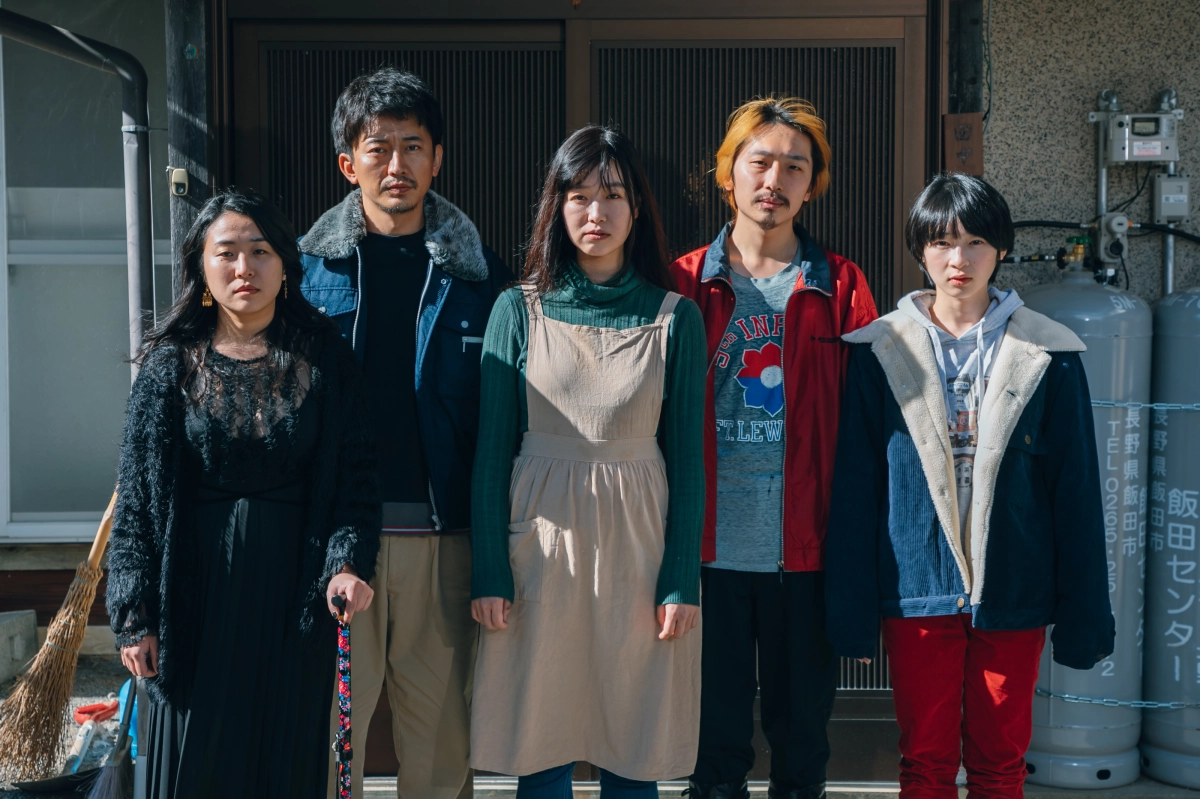
Was there a moment when you thought whether you can say this to Kokone Sasaki, who plays your sister in “Qualia”?
Maya Kudamatsu: The thing about her is she thinks it is useful, almost educational when she says these nasty things to her sister. It is quite challenging to make these sentences sound normal and not as insulting as they really are, because my character does not think about them that way.
Ryo Ushimaru: Many times I have played the villain or a bad buy as an actor. What you have to keep in mind about these people is that they have their own sense of justice. When they say something nasty or insulting, in their mind it may mean something completely different.
Mr. Ushimura, you have worked with a lot of well-known names of the Japanese film industry, such as Eiji Uchida and Masashi Yamamoto. What have you learned while working with them?
Ryo Ushimaru: I learned quite a lot working with them. Yamamoto is like a mentor for me and it was interesting to see how Uchida shoots a scene.
Maya Kudamatsu: The directions my husband gives to his actors are quite similar to Uchida's style.
“Qualia” is described as a blend of drama and a satire on the Japanese concept of family. Which parts of the latter do you address and criticize?
Ryo Ushimaru: In Japan, blood relations and belonging to a prestigious family used to be very meaningful. Even though this system has been suspended on paper, it is still relevant and defines everyday life. But also there is this notion that you bring great shame to your family when you get a divorce or cannot have children. Additionally, patriarchal structures are still present in many families which is evident in the relationship of the older sister and her younger brother in “Qualia”.
Even though we know that when a couple cannot have children, the man can also be the reason for that. However, especially in rural areas, we still encounter the idea that he has perhaps chosen the wrong woman.
What is your favorite scene on “Qualia”?
Ryo Ushimaru: I quite like the last scene. We did not have a lot of money and it was clear to all of us we would only have one take for this scene. Just before we were about to shoot, the sky cleared up and we had ideal circumstances. To this day I think “Qualia” is a blessed movie.
Thanks for the interesting conversation.


